The medical term Hepatomegaly means abnormal liver enlargement. Hepatomegaly is often caused by liver disease. But diseases of other organs can also result in liver swelling.
What is hepatomegaly?

© CLIPAREA.com - stock.adobe.com
The liver is the central metabolic organ in the human body. It is important for the breakdown and elimination of various substances, produces vital proteins and utilizes many food components. The organ is located in the right upper abdomen and weighs between 1.4 and 1.9 kilograms in adults.
In a healthy state, the liver has a soft structure and is easily palpable under the right costal arch in slim people. In hepatomegaly, the liver is enlarged. Depending on the extent, the liver can then even become visible or can also be palpated in obese patients. Hepatomegaly can have many causes and is therefore not a disease, but an examination finding.
causes
Enlargement of the liver can have many causes. In general, the liver can enlarge with inflammation. Inflammation of the liver is known as hepatitis. For example, hepatitis with enlarged liver can be caused by viral infections.
Viruses are responsible for hepatitis A to hepatitis E. An infection with glandular fever, a disease caused by the Epstein-Barr virus, can also lead to liver swelling due to inflammation of the liver.
Other viruses that can cause liver enlargement are the cytomegalovirus or coxsackie virus. Of course, bacterial infections can also lead to hepatomegaly. Leptospira, Brucella and Salmonella in particular come into question here.
In the case of liver swelling, a parasite infestation should also be considered. Liver swelling is often associated with amoebic dysentery or malaria infection. Toxic hepatitis is usually caused by alcohol.
As a result of excessive alcohol consumption, the liver builds more and more fats into its cells. Gradually, a fatty liver develops. If the fatty liver cells become inflamed, one speaks of alcohol-related fatty liver hepatitis. Fatty liver hepatitis can also occur in connection with other diseases such as diabetes mellitus or obesity.
Even without inflammation, fatty liver causes liver enlargement due to the heavy fat storage. Furthermore, storage diseases such as the iron storage disease hemochromatosis or special forms of the metabolic disease porphyria can cause hepatomegaly. Bile acid is formed in small ducts in the liver. This then flows through the draining bile ducts into the gallbladder and the intestine.
If there is an obstruction to drainage, for example due to gallstones, during pregnancy or due to a carcinoma of the pancreas head that presses on the bile ducts, the result is a backlog of bile acids into the liver. This can result in hepatomegaly.
Hepatomegaly can also be a symptom of right heart failure or right heart failure. The right ventricle is no longer able to pump the venous blood from the body into the lungs. This causes the blood to build up back into the body's circulation.
This can lead to a so-called congestive liver with enlarged liver. Occlusions of the inferior vena cava or bulges in the hepatic artery also cause blood to congest, resulting in an enlarged liver. In the case of hepatomegaly, a primary liver tumor or liver metastases should always be considered.
You can find your medication here
➔ Medicines for jaundice and liver problemsTypical & common liver diseases
- Cirrhosis of the liver
- Liver failure
Symptoms, ailments & signs
Hepatomegaly can manifest itself through very different symptoms. In the liver area there are the typical signs of jaundice, i.e. yellowish discolored skin, brittle fingernails and an increasing feeling of illness. Usually there is also itching of the skin, which can spread to the entire body in the course of the disease.
In the late stages of the disease, redness may develop, which is painful to the touch and, in isolated cases, causes bleeding. In addition, it can lead to sensitivity disorders and other problems in the skin area. Accompanying this, most patients complain of a feeling of pressure in the right upper abdomen and uncharacteristic upper abdominal pain, which appear suddenly and increase in intensity as the disease progresses.
The symptoms mentioned usually occur in connection with classic symptoms such as fever, exhaustion and malaise. Patients are also often tired and exhausted. A feeling of fullness occurs almost immediately after meals.In the course of the disease, various other symptoms can occur depending on the cause.
If congestion-related complaints are the cause, severe pain occurs in the book space, accompanied by stool or urinary retention. If fatty liver is the cause, hepatomegaly often occurs in connection with cardiovascular complaints and symptoms of intoxication.
Diagnosis & course
To make a diagnosis, the doctor first scans the abdomen to assess the extent of the liver enlargement. He can also assess the consistency of the liver. In the case of hepatitis or a jammed liver, the consistency is rather soft, in the case of a tumor it is rather coarse. Yellowing of the skin, visible dilation of blood vessels or reddened palms of the hands indicate liver disease, whereas swollen legs, for example, are more likely to indicate right heart failure.
The physical exam is followed by an analysis of the blood. The blood cell sedimentation rate (ESR), the liver enzymes (e.g. GOT and GPT) and blood clotting are determined. A differential blood count is also taken.
A routine examination of hepatomegaly also includes ultrasound of the abdomen. A liver biopsy may be required if specific diseases such as tuberculosis or sarcoidosis are suspected to trigger hepatomegaly. During a liver puncture, tissue is removed and examined in the laboratory.
Complications
Hepatomegaly greatly enlarges the liver. This can lead to the displacement or crushing of the other organs, so that these are also damaged. As a rule, hepatomegaly does not appear as a single symptom, but is a complaint of liver cirrhosis or liver failure. In most cases, the symptoms of the liver cause jaundice and the inner surfaces of the patient's hands turn red.
The legs can also swell and hurt as a result of the disease. The patient's quality of life is limited by this disease. However, no general prediction of the complications or symptoms is possible, as these depend on the type and strength of the enlargement. Not infrequently, however, the kidneys are also affected by hepatomegaly.
Treatment of the disease is carried out without complications with the help of antibiotics. The disease progresses positively after just a few weeks. There are no further complaints. If necessary, the person concerned must avoid the consumption of alcohol. With correct and early treatment, hepatomegaly does not reduce life expectancy.
When should you go to the doctor?
If signs of jaundice are noticed, often with itching skin and pain in the right upper part of the abdomen, it may be due to hepatomegaly. Medical advice is required if the symptoms persist for more than a week and increase in intensity as the disease progresses. If there are additional symptoms, a doctor's visit is also advisable. General symptoms such as a rapid feeling of fullness, tiredness or general malaise must always be clarified.
If the hepatomegaly is left untreated, serious complications such as bruising of other organs or chronic pain can develop. People who suffer from fatty liver disease and other liver diseases are particularly at risk. Hepatomegaly can also develop as a result of congestion-related symptoms such as right heart failure or tumors.
Anyone who belongs to these risk groups should have the symptoms clarified quickly. In addition to the family doctor, a specialist in liver diseases (hepatologist) or specialists in internal medicine can be consulted. In the event of severe symptoms, it is best to go to a specialist or the nearest hospital directly.
Doctors & therapists in your area
Treatment & Therapy
The therapy of hepatomegaly is carried out by treating the underlying disease. Acute viral hepatitis usually heals on its own. A liver-sparing diet and sufficient rest should be ensured. However, hepatitis C in particular tends to become chronic. That is why interferon and other virus-inhibiting drugs are used here.
Liver inflammations caused by bacteria are treated with antibiotics. If the liver inflammation is caused by alcohol abuse, alcohol is strictly forbidden. In the case of an enlarged fatty liver that is not caused by alcohol, the cause must be found and treated. Obese patients should lose weight, in patients with diabetes mellitus the blood sugar level must be optimally adjusted.
If the liver enlargement is caused by a right heart failure, ACE inhibitors, diuretics or beta blockers are used to relieve the heart. Smoking and alcohol should be taboo, and stress and weight should be reduced.
Outlook & forecast
The prognosis of hepatomegaly depends, among other things, on the size of the liver or the rate of growth of the liver and its sensitivity to touch. The underlying disease also has a significant influence on whether and to what extent the liver enlargement can be treated. If the hepatomegaly is recognized quickly, the growth of the organ can be slowed down or even stopped by dietetic and medicinal measures.
The prospect of full recovery is given if the underlying ailment can be cured. A very advanced disease in which cirrhosis of the liver may already have developed can no longer be treated symptomatically and only to a limited extent.
The therapy focuses on avoiding further complications such as liver infarction or the development of liver cancer or on detecting these secondary diseases at an early stage. A liver transplant may also treat advanced hepatomegaly. However, there is a risk that the body will reject the donor organ.
An enlarged liver that is already in its terminal stages cannot be treated anymore. Therapy is then typically limited to relieving the pain. Finally, palliative medical measures are initiated.
You can find your medication here
➔ Medicines for jaundice and liver problemsprevention
Hepatomegaly can only be prevented to a limited extent. Vaccinations are available to protect against hepatitis A and hepatitis B. Other viral or bacterial infections are difficult to prevent. A stable immune system is certainly helpful. Alcohol-related fatty liver hepatitis can be prevented by abstaining from alcohol. To prevent fatty liver disease, we recommend regular monitoring of blood sugar levels and sufficient exercise, as well as a healthy diet to prevent obesity.
Aftercare
In most cases, people with hepatomegaly have little or no follow-up care available. Therefore, with this disease, they are primarily dependent on a quick and above all on an early diagnosis so that there are no further complications and also no further worsening of these symptoms. A doctor should therefore be consulted at the first symptoms and signs of hepatomegaly.
Treatment is usually carried out by taking medication, primarily antibiotics. Attention should be paid to the correct dosage with regular intake in order to relieve the symptoms permanently and correctly. It should also be noted that the antibiotics should not be taken together with alcohol, otherwise their effect will be greatly weakened.
A doctor should always be consulted if you have any questions or are unclear. In general, with hepatomegaly, a healthy lifestyle with a healthy diet also has a positive effect on the course of the disease. The affected person should also refrain from smoking and achieve a healthy weight. In some cases, this disease reduces the life expectancy of those affected.
You can do that yourself
Hepatomegaly cannot be treated directly by means of self-help. Those affected are dependent on the help and treatment of a doctor.
In some cases the disease can also be prevented with hepatitis A and B vaccinations. However, full protection is not guaranteed. A strong immune system can also have a very positive effect on the further course of the disease. If the person concerned suffers from alcohol addiction, this must be stopped immediately.
Withdrawal may also be necessary, which can be carried out in a clinic. The support of friends and family has a positive effect on the success of the withdrawal. Regular monitoring of blood sugar levels and a healthy lifestyle with a healthy diet can also prevent the disease.
Medical treatment takes place with the help of antibiotics and other drugs. Possible interactions with other drugs should be clarified by the doctor. Regular controls and examinations of the liver and other organs are also necessary.

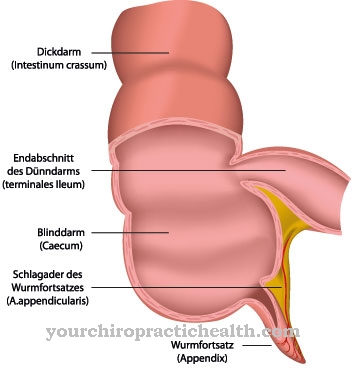
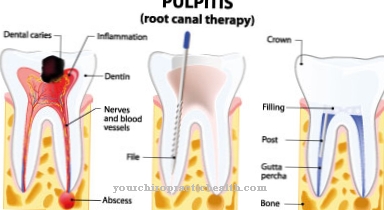
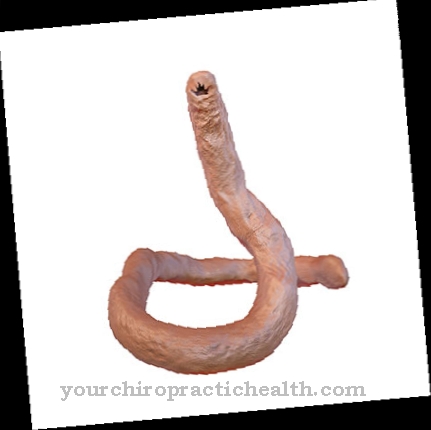
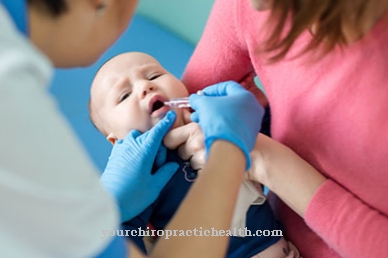

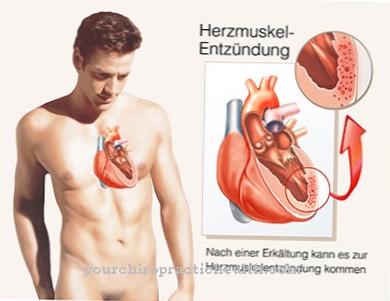

















.jpg)



